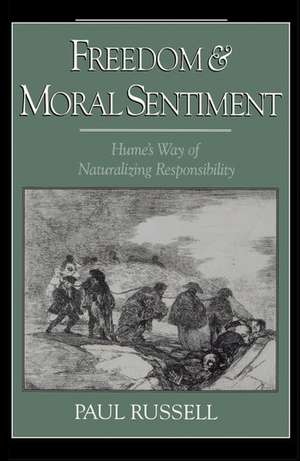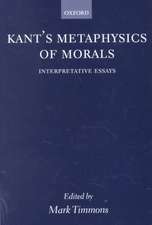Freedom and Moral Sentiment: Hume's Way of Naturalizing Responsibility
Autor Paul Russellen Limba Engleză Paperback – 25 apr 2002
| Toate formatele și edițiile | Preț | Express |
|---|---|---|
| Paperback (1) | 166.01 lei 31-37 zile | |
| Oxford University Press – 25 apr 2002 | 166.01 lei 31-37 zile | |
| Hardback (1) | 861.22 lei 31-37 zile | |
| Oxford University Press – 21 mar 1996 | 861.22 lei 31-37 zile |
Preț: 166.01 lei
Preț vechi: 191.99 lei
-14% Nou
Puncte Express: 249
Preț estimativ în valută:
31.77€ • 33.17$ • 26.29£
31.77€ • 33.17$ • 26.29£
Carte tipărită la comandă
Livrare economică 25-31 martie
Preluare comenzi: 021 569.72.76
Specificații
ISBN-13: 9780195152906
ISBN-10: 0195152905
Pagini: 216
Dimensiuni: 152 x 231 x 20 mm
Greutate: 0.35 kg
Ediția:Revised
Editura: Oxford University Press
Colecția OUP USA
Locul publicării:New York, United States
ISBN-10: 0195152905
Pagini: 216
Dimensiuni: 152 x 231 x 20 mm
Greutate: 0.35 kg
Ediția:Revised
Editura: Oxford University Press
Colecția OUP USA
Locul publicării:New York, United States
Recenzii
Russell's book makes an important contribution to the literature on Hume's moral philosophy, especially in showing a breadth to his view that is sometimes obscured by too heavy a focus on his subjectivism. And Russell's discussion of Hume's relevance for contemporary debates over naturalism in ethics will be of interest to a wider philosophical audience.















